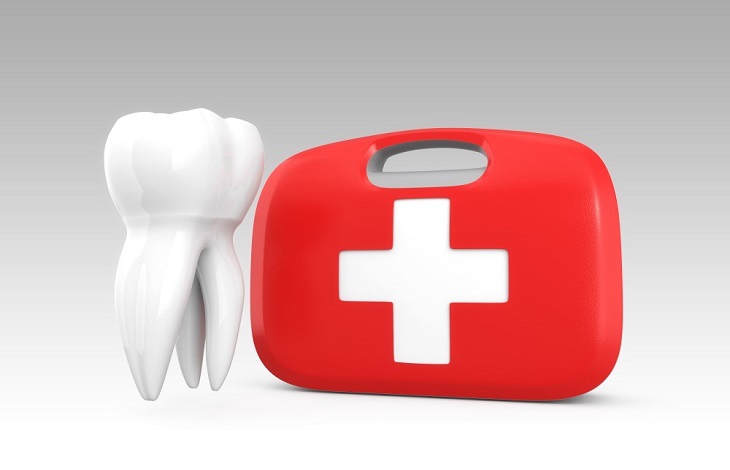The 6 Most Common Dental Emergencies and How to Handle Them
We deal with emergency dental appointments regularly. However, many patients are usually unsure of whether their dental issue is an emergency or not.
To know if your dental problem is a dental emergency, you need to know the typical emergencies, how to care for your teeth before your appointment, and how to seek help.
Keep reading to learn about dental emergencies – you never know when you’ll need this information, so pay attention!
What Is A Dental Emergency?
Patients usually consider a dental emergency when they have sustained an injury that could result in tooth loss. Although this is a dental emergency, there are less extreme cases of dental emergencies.
A dental emergency is essentially any dental appointment that is not routine. So if you need a checkup, teeth whitening, or a professional dental clean, this would not be an emergency. However, suppose you’re experiencing any mouth pain, lacerations, or bleeding in the mouth. In that case, you can book an emergency appointment with your local Maroubra dentist to resolve the issue.
If there is any severe discomfort or pain in your mouth, you should book an emergency dental appointment.
What Are The Most Common Dental Emergencies?
To help you better understand dental emergencies, here are some of the most common types.
- Toothache – toothache isn’t usual, and you should book an emergency dental appointment with your dental clinic in Maroubra as soon as you notice any toothache. Toothache can indicate something seriously wrong with your dental health and can be caused by issues like tooth decay or wisdom teeth growing obstructively.
- Chipped or broken teeth – if you damage a tooth, however slightly, you should seek emergency dental care. Chipped or broken teeth can become infected due to destroying the tooth’s protective enamel.
- Knocked-out teeth – if you have sustained an injury to the mouth and your tooth has fallen out, you need emergency dental care. The sooner you can reach the dentist, the more likely it will be that your dentist can resituate the tooth in your mouth and prevent tooth loss.
- Lost filling or crown – your crowns and fillings protect your teeth from infection. If you lose a crown or filling, your tooth loses its protective barrier. In this instance, you should seek emergency dental care as soon as possible to avoid the possibility of infection or further damage to your teeth.
- Bleeding or pain – if you are experiencing bleeding or pain after a dental procedure such as tooth extraction, you should book an emergency appointment to see your dentist as soon as possible.
- An abscess – An abscess is like a pimple in the mouth. If you have a spot in the mouth, this is usually a sign of infection. Infections in the mouth can lead to tooth loss if left untreated, so seeking emergency care is a priority.
What Should You Do To Deal With Your Dental Emergency?
There will likely be some time before you get to the dentist in the event of a dental emergency, which is why you need to know which steps to take before your appointment.
If you have lost your tooth, your priority is to find the tooth. Try to place it back in your mouth and hold it in place until you get to the dentist. If you can’t put the tooth back, you’ll need to soak it in milk to keep it from drying out and dying.
For other dental emergencies, you may wish to take over-the-counter pain medications to help you cope with your discomfort. If you fear your tooth is damaged, you should try to avoid eating and drink only water until your appointment to reduce the risk of further damage or infection.
You must prevent further damage before you get to the dentist once you have booked your appointment. Follow these practices to take care of your teeth and ensure you don’t exacerbate the problem.
How Do You Book An Emergency Dental Appointment?
You can usually book an emergency dental appointment over the phone. If you can’t reach your dentist over the phone, or it’s outside of working hours, you should visit your dentist’s website to see if there are any alternative contact options, such as email or an emergency line.
You will need to give your dentist the precise details of the issue to determine the urgency of the dental emergency. Your dentist will provide clear instructions on what to do until your appointment and how to preserve your teeth.
If you have taken strong pain medication for your pain, you should ensure you have someone to drive you to your dental appointment. You should also ensure someone you know is available to collect you from your appointment should you need to have a procedure performed on your teeth.
When you get to the dentist, your dentist will examine your teeth to find the source of the problem. The dentist will likely prescribe you medication for managing your pain, and they will be able to perform a procedure to salvage or restore your teeth. In some cases, you will not be able to have the procedure performed on that day. You may need a separate appointment for your procedure, but your dentist will give you instructions on how to care for your teeth in the meantime.
Summary
Dental emergencies happen, and you need to know which steps to take should you experience a dental emergency. If you have any abnormal pain, bleeding, or damage to the mouth, this is usually considered a dental emergency, and you should book an emergency appointment with your local dentist. If you have a dental emergency, contact our friendly team at Maroubra dental clinic to access emergency care.
Read Also:
Our Top Tips To Help You Visit The Dentist Less (And Why That’s Our Goal)
4 Reasons To Look After Your Teeth

